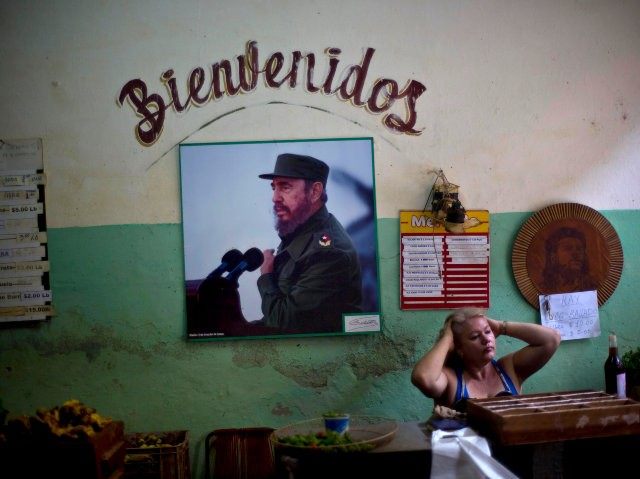Reuters reports today that President Barack Obama is preparing to “act quickly” upon the State Department’s recommendation regarding whether Cuba will remain on its State Sponsors of Terrorism list. Cuba, which has for decades been aiding Marxist terror groups like the FARC and ETA, has demanded their status be amended as a condition of reestablishing diplomatic relations with the United States.
As Reuters notes, the President had expressed a desire to open a U.S. embassy in Havana by the date of the 2015 Summit of the Americas, set to begin on April 10. Multiple meetings between American and Cuban diplomats have resulted in no significant agreements, making this impossible. Cuban diplomat Josefina Vidal has declared any changes in how the communist government operates as categorically “non-negotiable,” while President Raúl Castro has demanded the return of the Guantánamo Bay military facility for “nothing in return.”
Cuban diplomats have repeatedly referred to their designation as a state terrorism sponsor as “nonsense” and a concrete barrier to diplomatic relations with the United States.
Despite the obstinance of the Cuban regime, President Obama has requested that the State Department review Cuba’s recent activities to reassess whether the nation belongs on the State Sponsor of Terrorism list. Reuters notes that the President has given “no sense of where the administration is heading on the issue,” Reuters notes, only stated that he would act swiftly in the direction they recommend. “As soon as I get a recommendation, I’ll be in a position to act on it,” he told National Public Radio. He also made explicit that “repressive or authoritarian activities in their own country” would have no impact on the designation– only their ties to known terrorist groups.
While the President has not indicated whether he is in favor or against lifting the designation, he recently argued that Cuba is not a security threat to the United States. In an interview with the New York Times‘ Thomas Friedman, President Obama described Cuba as “a tiny little country” that does not “threaten our core security interests.”
According to the official State Department designation, Cuba is a state sponsor of terrorism for its support of the Basque Marxist separatist group ETA, many members of which fled Spain after committing various acts of violence and found refuge in Cuba. ETA has filled at least 829 people between 1959 and 2011. The Cuban government has also granted asylum to members of the Revolutionary Armed Forces of Colombia (FARC), and, according to the State Department, “provided medical care and political assistance” to the group. No group has managed to compile an official death count for the FARC since its establishment in 1958, it is estimated that the FARC has killed hundreds of thousands. It is currently the world’s wealthiest non-jihadist terror group, second only to the Islamic State and Hamas.
Havana is currently home to the FARC’s top leadership, who are currently engaged in “peace talks” with the Colombian government. They have repeatedly broken ceasefires they vowed to respect during meetings between FARC leaders and Colombian officials, most recently in late March with the murder of a Colombian soldier.
In addition to ties with Iberoamerican terrorist groups, Cuba has worked to strengthen its ties with Iran, a member of the State Sponsors of Terrorism list whose status few dispute. Through pro-Iranian politicians in Venezuela, Cuba has worked to support the increasingly looming presence of Iran in South America. According to research by the Center for a Secure Free Society, Cuba provided Venezuelan Mideast operative Tareck Zaidan El Aissami Maddah with technology to “give some 173 individuals from the Middle East new Venezuelan identities that are extremely difficult to trace.”
It has since surfaced that Argentina sought Venezuela’s help in issuing South American passports to Iranians with known Hezbollah ties, to allow them to travel more freely.
Whether Cuba’s ties to Iran will be part of the State Department’s calculation remains to be seen; those ties are not mentioned on the State Department website currently. Cuba’s ties to violent actors internationally are no secret to longtime observers, however, and allowing the island nation greater freedom to connect with like-minded groups in this arena could well amount to a national security threat for the United States.

COMMENTS
Please let us know if you're having issues with commenting.